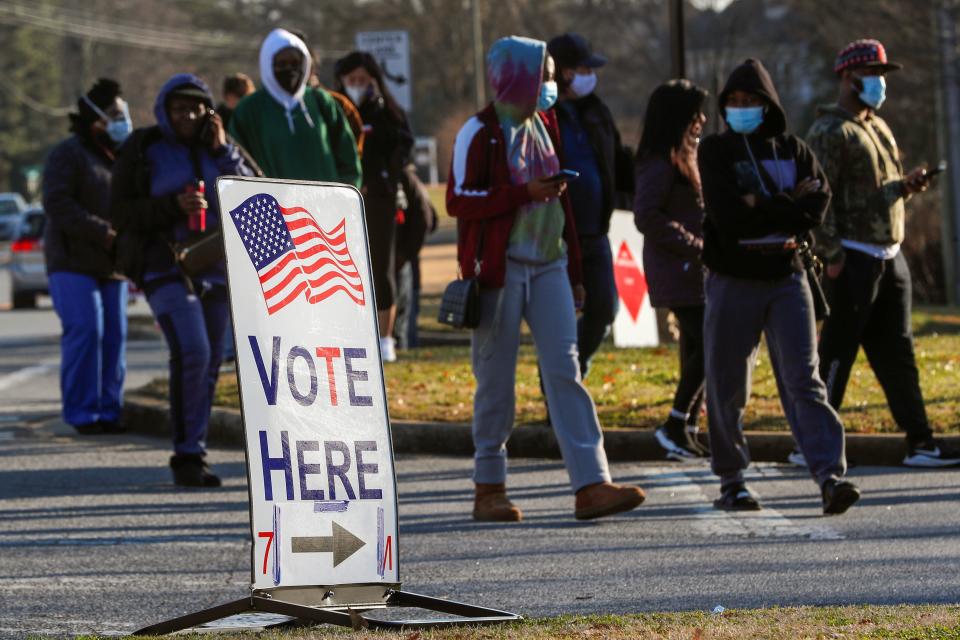Georgia lists more than 100,000 people whose voter registrations could be cancelled

Georgia Secretary of State Brad Raffensperger has notified more than 102,000 people in the state that their voter registrations could be cancelled as part of its biennial “purge” of voting rolls.
The mass cancellations – performed every two years – follow the removal of 287,000 people from the state’s voter rolls in 2019 and 524,000 people from voter rolls in 2017, marking the largest purge of registered voters in US history, ahead of a 2018 race for the state’s governor.
More than 300,000 people were erroneously flagged as ineligible to vote the day before that election, in which then-Secretary of State Brian Kemp – whose office oversaw the election – defeated voting rights advocate Stacey Abrams.
Following the 2017 purge, the state was forced to admit it removed more than 22,000 voters in error following a legal challenge from Fair Fight Action, the group formerly helmed by Ms Abrams.
The latest voter cancellations follow a wave of Republican-backed, restrictive elections legislation in nearly every state – including a sweeping law in Georgia – that voting rights advocates argue will disproportionately suppress voters of colour and make it more difficult to cast a ballot.
The list of voters in Georgia’s upcoming cancellation targets roughly 1.3 per cent of the state’s 7.8 million registered voters.
Of the 101,789 “obsolete voter files” targeted for elimination this year, they include more than 67,000 people whose information matches a change of address form with the US Postal Service, and more than 34,000 people whose mail was returned to sender.
In a statement to The Atlanta Journal-Constitution, Fair Fight Action CEO Lauren Groh-Gargo said the organisation will “be reviewing the list thoroughly and reaching out to impacted voters.”
The list also includes 276 people who haven’t voted or contacted elections officials within the last five years, targeted for removal under the state’s “use it or lose it” policy .
The state will notify impacted voters, who then have 40 days to save their registrations before they are eliminated. Voters whose registrations are cancelled will have to re-register.
“Bottom line, there is no legitimate reason to keep ineligible voters on the rolls,” Mr Raffensberger said in a statement.
Voting rights groups have warned that removing voters under “use it or lose it” laws could target voters who simply chose not to vote in certain elections, and that frequent mass purges could risk erroneously removing eligible voters.
In the two years leading up to the 2016 presidential election, states removed nearly 16 million voters from the rolls, according to an analysis from the Brennan Center for Justice. That figure is nearly 4 million more than the number of voters purged between 2014 and 2016.
The For The People Act – proposed federal legislation that would standardise early voting periods and mail-in voting options and automatically register eligible people to vote, among other measures – would prohibit states from culling their voter rolls without first confirming identifying information from voters or cross-checking information with the Electronic Information Registration Center.
It also would require election officials to complete interstate cross-check purges at least six months before an election.
Read More
Watch live as Joe Biden signs Juneteenth National Independence Day Act

 Yahoo Finance
Yahoo Finance 